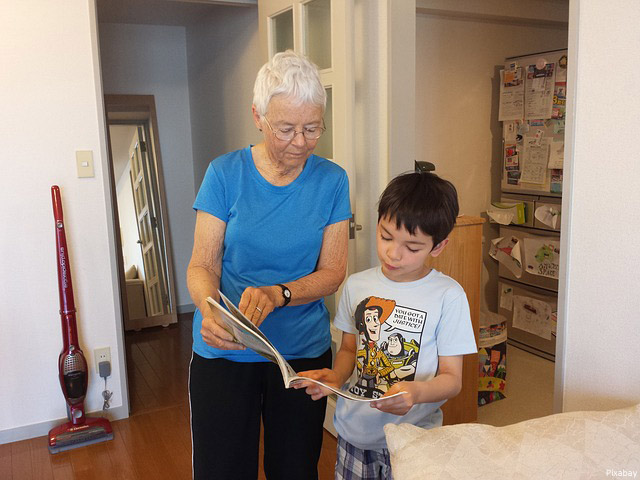Multigenerational households are becoming a common trend amongst families in the country. The most popular form of this are parents turning into grandparents and ultimately moving in with their children. If you find yourself in this position, there should be no shame or worry. Moving in with adult children has its benefits such as lower expenses and more family time, however there are a lot of things that can go wrong. This type of move can be stressful, considering the various sets of circumstances people may experience leading up to the decision. But whether it is a shortage of funds, the loss of a job, an illness that requires extra care or the death of a spouse, there are several ways to ease the transition of moving into your adult son or daughter's home.
How To Make It Work
Similar to a child moving back in with his/her parents, you may view your son or daughter as your safety net. So, regardless of what circumstances have brought you here, you are looking to this child for a place to live in a time of need. For your physical and mental health, as well as your safety and well-being, you've concluded that this is the best option for you. But to make it work, you must keep a few things in mind:
- Understand that this is not your home.You will be living with your child and his/her family, so you must adapt to their way of life. This is especially important if your child has young children. Remember that your child is a parent and you should not step on any toes as the grandparent. It is ultimately up to your grandchildren's parents to decide how to raise and discipline the little boys or girls.
- Housing another person can be expensive.Be sure to discuss your financial situation with your son or daughter and his/her spouse. You may want to contribute to a monthly family expenses, such as grocery shopping and utilities like cable, electricity and water. You can also pay rent if your bank account allows you to do so. A multigenerational household can be even more expensive if you require personal care or a nurse for a certain condition. Of course, if you are moving back in with your son or daughter because of limited finances, then this conversation may differ for you.
- Let your child and his/her family have their privacy.You are moving into your child's home, so some privacy issues may be expected early on. But keep in mind that your child and his/her spouse need their space, as do your grandchildren (if applicable). Another important person to keep in mind is yourself. Make sure your child accommodates your particular needs and recognizes that you deserve privacy as well. Sometimes, a parent moving in with his/her child will live in a guest house, or the child will have an extension built onto the existing home to make the appropriate accommodations. Most families cannot afford this type of work, so you will often have to make the best of what is available.
- It's a difficult adjustment for everybody.You're not the only one with unanswered questions. Your child and his/her family want to know how this is going to work, too. So, think about things like:
- How independent are you? Can you get around by yourself, or do you need to be driven?
- How useful are you around the house? In what ways can you help out?
- Will you help your grandchildren with homework? Are you able to babysit when necessary?
- What will a typical day be like for you?
- What do you need to be comfortable? Are there any special accommodations required?
Potential benefits of multigenerational households
Though there are a multitude of questions and doubts, there can also be plenty of benefits to a multigenerational household. If there were no benefits, then we doubt so many parents would even consider moving back in with their sons and daughters. Here are a few of the biggest potential benefits of living with your adult child:
- You can save up money while looking for a job (if necessary).
- If you are out of work or retired, you can help out around the house.
- If there are grandchildren involved, you will get to spend some extra time with them. This is especially great for the kids. It also benefits your son or daughter and his/her spouse whenever they want a night to themselves. You can be a last-minute babysitting service.
- If this move follows the loss of a spouse, you will be surrounded by people who love and support you.
- Living together could be a good way to establish routines and traditions with grandchildren.
Usually, moving in with your adult son or daughter is the result of an unfortunate event. But while many multigenerational households may come about from something negative, they can have an extremely positive impact on your family.